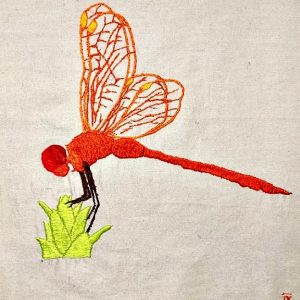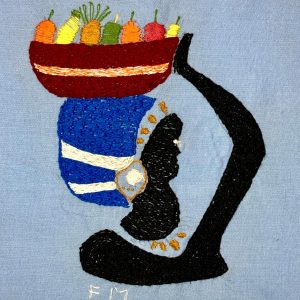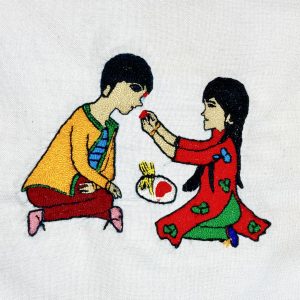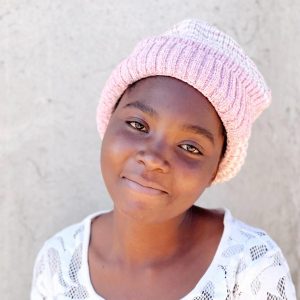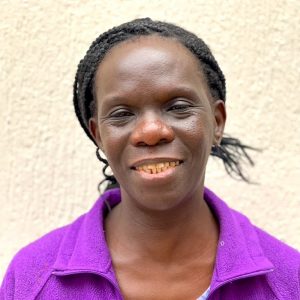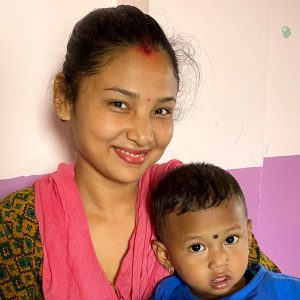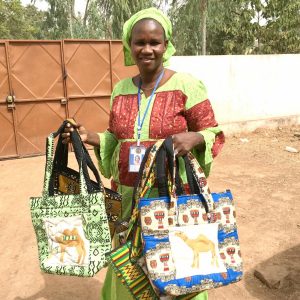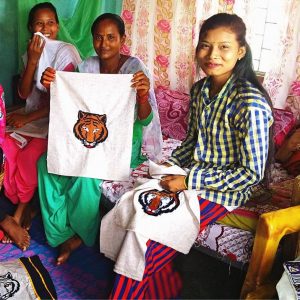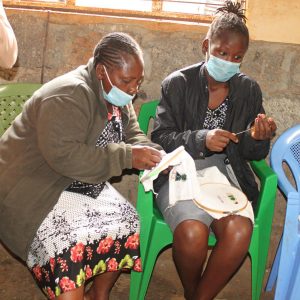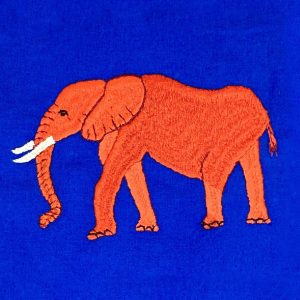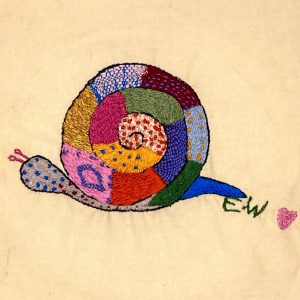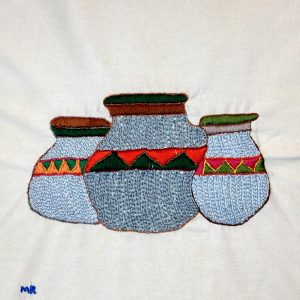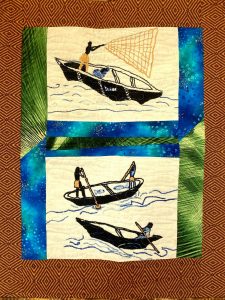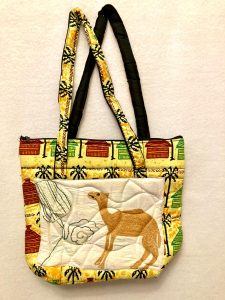ADVOCACYNET 390 December 8, 2022
Southern Stitchers Is Open For Business!
The online store carries embroidery from marginalized communities in the Global South
The Advocacy Project (AP) is pleased to announce the launch of Southern Stitchers, the first online store to sell embroidery from women and girls in marginalized communities of the Global South.
The store opens today in advance of International Human Rights Day (December 10) with a sampling of 96 embroidered blocks from 64 fiber artists in Kenya, Uganda, Zimbabwe and Nepal. The cost runs from $15 to $25 a block.
The store also carries tiger bags from Nepal as well as camel bags and wall hangings from Mali, ranging in price from $40 to $160. Artists will be paid as their work sells.
Southern Stitchers is the latest in a series of initiatives by AP to empower women through stitching. The program began in 2006, when weavers in Bosnia wove a memorial quilt to remember family members who had died in the Srebrenica massacre.
In the years since, women and girls from 22 countries have made embroidered stories for 123 quilts and become first-rate stitchers in the process. But as their skills and motivation have grown, so has their need for money. Many are single mothers and were struggling before the pandemic. COVID-19 thrust them deeper into poverty.
“Our goal is to help these amazing women and girls earn an income and put a value on their embroidery,” said Bobbi Fitzsimmons, who coordinates AP’s quilting program. She added that $25 can go a long way in communities under pressure, and should be seen as just the start: “If they sell something, we hope they will want to continue.”
*
The new store is the product of months of collaboration between AP and several partner organizations that are profiled on the new site.
Ms Fitzsimmons visited Zimbabwe, Kenya and Uganda this summer to provide extra training. She was accompanied by Delaney Rogers, AP’s project manager, who produced photos and profiles of trainees for the store while Abby Hack built the store on Shopify from the US. The project has been generously funded by Humanity United.
While they await the verdict of the market place, team members said they were delighted by the quality of the initial offerings.
The designs range from a delicate dragonfly by Stella Makena in the Kibera settlement of Nairobi to a imposing elephant by Christine Kibuka, who also lives in Nairobi. Other favorites include intricate festival designs that were made by family members of the disappeared in Nepal using an unusual stitching technique known as reversed punch needle.
The quirkiest designs come from girls in Zimbabwe who took time off from their soap business to attend training from Ms Fitzsimmons this summer. The girls are veterans of story-telling, having described the threat from early marriage and the tension of living under COVID lock-downs for advocacy quilts. Many of their designs for the store are abstract, although several feature mothers at work with their infants.
The decision to open the store was prompted by the pandemic, but Southern Stitchers also carries products from earlier AP projects. These include camel bags that were stitched in 2017 by survivors of gender-based violence in Mali, wall hangings that were assembled in the US from Malian village scenes, and tiger bags made by the family members in Nepal.
The largest group of artists comes from Kenya and includes 25 women who received their first embroidery training from Ms Fitzsimmons at the UN Summit on Women and Girls (ICPD25) in Nairobi, November 2019. After contributing squares for The Woman’s World Quilt, which was unveiled at the conference, they made stories about COVID and followed up with embroidered animals and birds for the Sister Artists 2 quilt challenge.
The store also carries blocks from new AP partners, including mothers of children with albinism in Kenya and women in northern Uganda who were forced into sexual slavery by rebels from the Lord’s Resistance Army.
Both groups have shown considerable skill and urgently need an income. The Ugandan artists also use embroidery sessions to strengthen their friendships and help them face an unsympathetic world.
*
In creating a market for the embroidery AP will first approach quilters in North America and Europe who use embroidery in their own work. We will also offer a peace fellowship to a Business School student to help with marketing.
As demand picks up we hope to provide training for partners who have not yet contributed to the store, such as River Gypsies in Bangladesh, and integrate embroidery into 2023 start-ups. Projects under consideration include working with Afghan refugees and women in prison in the US.
Merry May, a well-known quilter in New Jersey who has assembled several advocacy quilts, has joined Ms Fitzsimmons on the AP Board to help with training and coordination.
Abby Hack, who designed the store, has included an “inspiration” section to showcase original ways of using the embroidery and provide the artists with ideas for future products. Tee-shirts, pillowcases and bowl designs are among the early suggestions.
Order now while stocks last. If an item is sold out, contact us and we will work with the artist to replenish her stock.
Our thanks to partners who have helped in this project:
Women Advocacy Project (Zimbabwe)
Shield of Faith (Kibera, Kenya)
The Kangemi Advocacy and Self Help Group (Kangemi, Kenya)
Women in Action for Women (Uganda)
The Network of Families of the Disappeared (Nepal)
Sini Sanuman (Mali)

